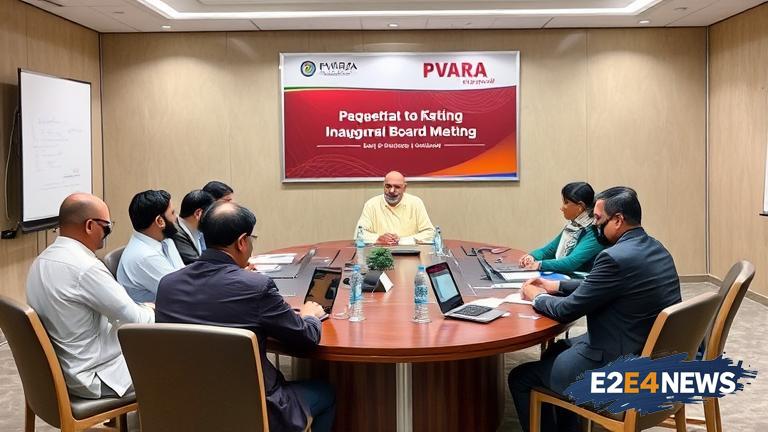The Pakistan Virtual Assets Regulatory Authority (PVARA) has taken a significant step towards advancing Anti-Money Laundering (AML) and Combating the Financing of Terrorism (CFT) compliance in the country’s virtual assets sector. The regulatory body recently held its first board meeting, marking a crucial milestone in its efforts to establish a robust framework for the regulation of virtual assets in Pakistan. The meeting was attended by key stakeholders, including representatives from the government, financial institutions, and industry experts. The primary objective of the meeting was to discuss and finalize the regulatory framework for virtual assets, with a focus on AML/CFT compliance. The board members deliberated on various aspects of the regulatory framework, including the licensing and registration of virtual asset service providers, customer due diligence, and reporting requirements. The meeting also provided an opportunity for stakeholders to share their concerns and suggestions on the proposed regulatory framework. PVARA’s efforts to advance AML/CFT compliance are in line with the recommendations of the Financial Action Task Force (FATF), an international inter-governmental organization that sets standards for AML/CFT. The FATF has been working closely with Pakistan to strengthen its AML/CFT regime, and the establishment of PVARA is a significant step towards achieving this goal. The regulatory authority is expected to play a crucial role in overseeing the virtual assets sector and ensuring that it is in compliance with AML/CFT regulations. The meeting also highlighted the importance of international cooperation in combating money laundering and terrorist financing. PVARA’s efforts are expected to have a positive impact on Pakistan’s economy, as a robust AML/CFT framework will help to attract foreign investment and promote economic growth. The regulatory authority is also expected to work closely with other regulatory bodies, such as the State Bank of Pakistan and the Securities and Exchange Commission of Pakistan, to ensure that the virtual assets sector is regulated in a comprehensive and effective manner. The meeting was a significant step towards establishing a well-regulated virtual assets sector in Pakistan, and it is expected that PVARA will continue to work towards achieving this goal in the coming months. The regulatory authority’s efforts are also expected to help reduce the risk of money laundering and terrorist financing in the country. Furthermore, the establishment of PVARA is expected to provide a boost to the country’s fintech industry, as a well-regulated virtual assets sector will provide a conducive environment for innovation and growth. The meeting also discussed the importance of consumer protection and the need for virtual asset service providers to ensure that their customers are aware of the risks associated with virtual assets. The regulatory authority is expected to work closely with industry stakeholders to promote awareness and education about virtual assets and the risks associated with them. In addition, the meeting highlighted the need for a robust framework for the regulation of initial coin offerings (ICOs) and other types of virtual asset transactions. The regulatory authority is expected to work towards establishing a comprehensive framework for the regulation of ICOs and other virtual asset transactions. Overall, the first board meeting of PVARA was a significant step towards advancing AML/CFT compliance in Pakistan’s virtual assets sector, and it is expected that the regulatory authority will continue to work towards achieving this goal in the coming months. The meeting marked an important milestone in the development of a well-regulated virtual assets sector in Pakistan, and it is expected that the country will continue to make progress in this area in the coming years.
